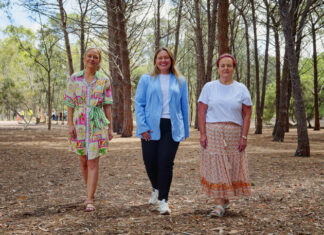GPs have welcomed the Greens’ healthcare pledges from last week, although with some reservations.
Adam Bandt announced a suite of primary care access policies, including expanding bulk billing incentives, ensuring equal pay for GPs in training, adding dental to Medicare and opening 1000 new healthcare clinics across the country.
Local GP Bernard Shiu said doctors were generally in favour of the Greens’ proposed measures.
“I would say about 90 per cent of what they are suggesting is actually very good, but there are some things I have concerns about,” Dr Shiu said.
Last year the federal government tripled bulk billing incentive payments, but only for concession card holders and children under 16 years of age.
Dr Shiu said extending that incentive to everyone would have a huge positive impact on community health, as would increasing the rebate for longer consultations.
“Increasing patient rebates for longer consults is something we’ve been begging and advocating for, because at the moment we are incentivising both doctors and patients to have short consults,” he said.
“So patients are asked to come back multiple times. For working mums and dads, they have to take another two hours, half-day off to come see us, when they could have had their problems dealt with in one consultation.”
The Royal Australian College of GPs (RACGP) president Dr Nicole Higgins welcomed the proposal to address the pay gap for GPs in training.
“A strong GP workforce is essential for a healthy Australia, but we know too many young doctors are put off from specialising in general practice due to the pay gap when they leave hospital training,” Dr Higgins said.
“The RACGP has been calling for government to encourage more home-grown doctors into general practice, including by closing the pay gap for GPs in training, and funding the entitlements GP registrars lose when they enter private practice.”
However, Dr Shiu said the plan to create another 1000 GP clinics nationally was “not a good idea” and would “waste a lot of money”.
“There’s no way you can have six more clinics in every single electorate; you just don’t have the workforce for it, for one,” he said.
“This is not a cost-effective investment to increase access to care. What they really need is to put the money set aside for these 1000 clinics back into Medicare, back into the clinics that already exist.”









